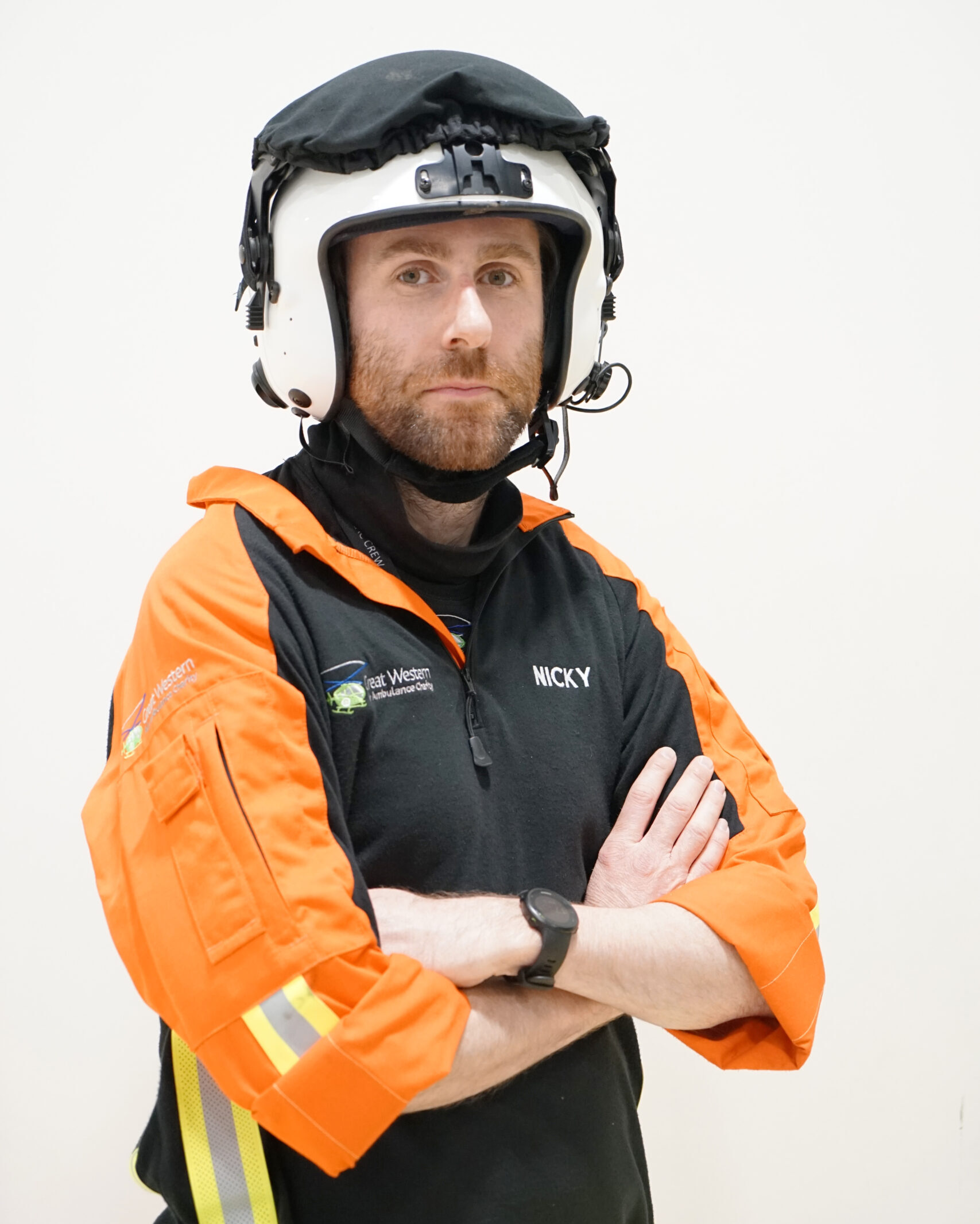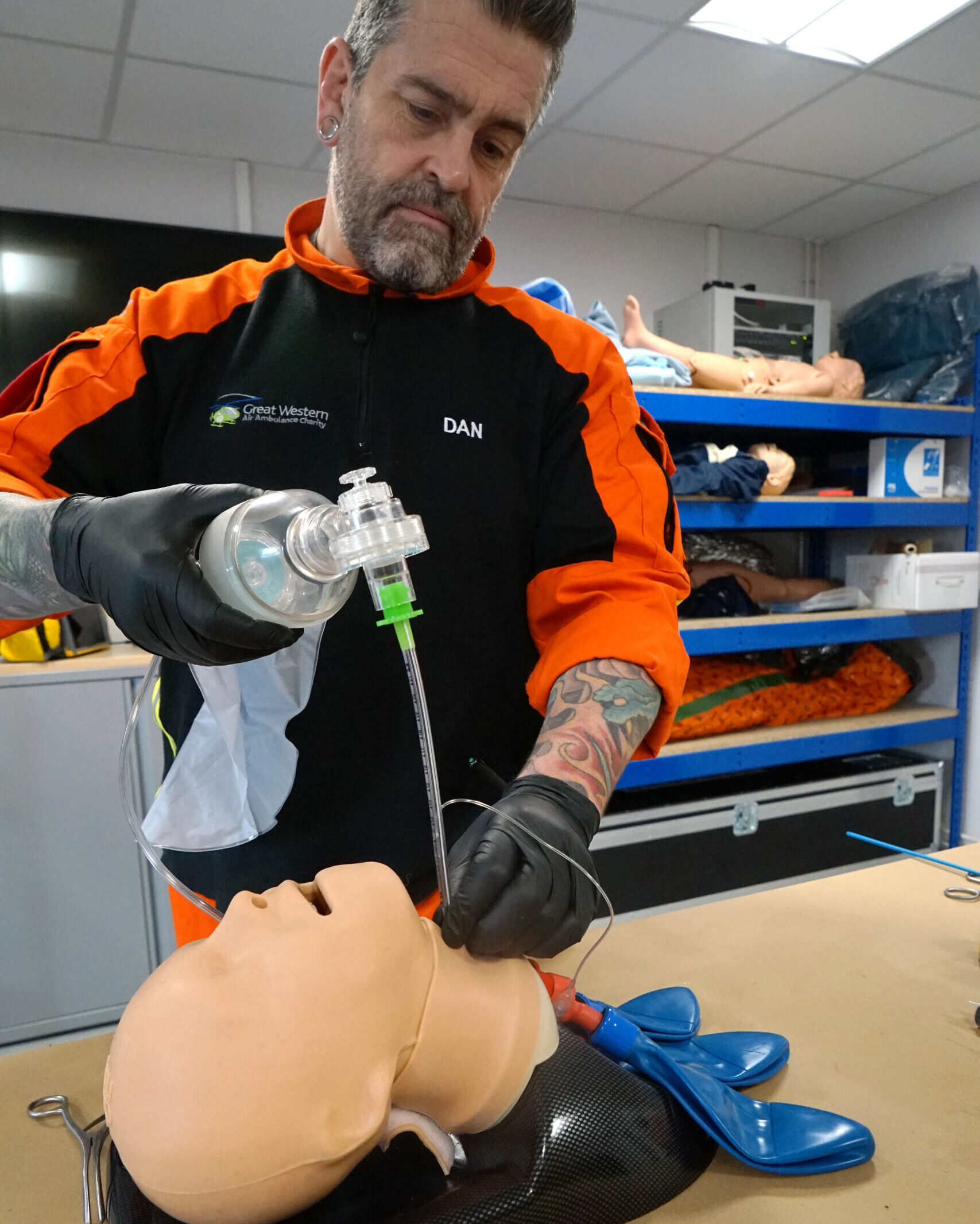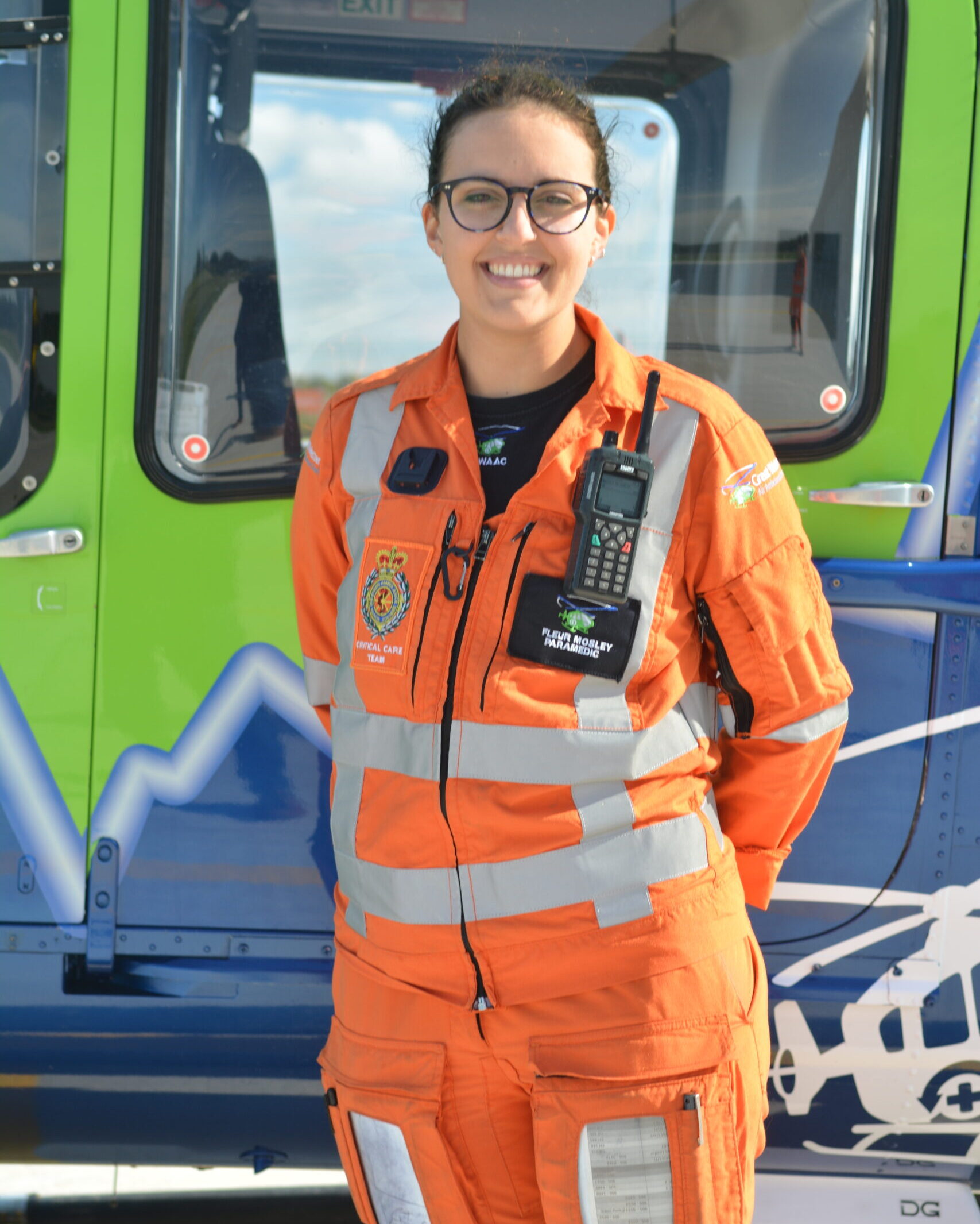With your help, we’ll be prepared for anything
Imagine a hospital emergency ward. Are you picturing clean sterile rooms, bright lighting? Can you see all the monitoring equipment surrounding each hospital bed, a team of medical staff by the patient?
What you’re imagining is a familiar environment for any Doctor or Paramedic. It’s safe, and it’s comfortable.
Now take away the bright lights, switch them for a headtorch on a dark night. Take away the clean room and picture a muddy field, on a rainy day. There is no hospital bed – just a patient on the ground, covered with a blanket to keep them warm. No team of staff, just two members of an air ambulance crew kneeling by their side. And instead of all that monitoring equipment, you have the items those two people were able to carry on their backs.
This is the type of environment we work in. It’s unpredictable, adrenaline-inducing, and tense.

The only way we can be prepared for anything is with regular training.
Specialised manikins for practising surgical procedures, a training room equipped with all the kit we take to the scene, formal training courses to add new skills to our repertoire – it’s only possible with your support.
A donation from you today can teach us the skills we’ll need to save lives tomorrow. Will you donate to ensure we always have access to the training resources we need?

Your support can give us the knowledge to make the right decision, fast.
“We practice lifesaving procedures over and over again to make sure our technique is as good as it can be. But sometimes it’s not so much the procedure itself, but the decision to perform it, where training can be most powerful. We may be faced with the decision to perform a complex and life-changing procedure on a patient. That's a huge responsibility. Training helps us understand when – or when not – to do something, to give the patient the best possible outcome."
Your support can help us constantly evolve and maintain our skills.
“A lot of the learning we do – from the way we pack our kit bags to the structure of our training sessions – is about forming muscle memory. Until you’re comfortable with a procedure, with the kit used, and with the decision-making behind it, you need to practice – over and over again. When you’re on scene and the intensity is high, and the patient in front of you needs urgent care, that muscle memory switches on. You’re ready.”


Your support can give us skills that will help other ambulance crews.
“Every job we attend, we hope to make a difference in some way. We’re there to make a difference for the patient - but we can also make a difference for other crews around us.
Our exposure to critical incidents, as well as the advanced training we do, means we have an important role to play in supporting other clinicians. A land ambulance crew might see a severe trauma patient every few months - for us, it happens every day. Passing on our skills and experience means better care for every patient.”
Training takes many forms – from desk-based learning and team discussions to practical courses and group simulations. When we reach the patient, all of this training comes together so we can make quick decisions and deliver the best possible treatment.
This training never stops. It’s vital that we continue learning every single day.
Please, donate today and ensure we always have the skills we need to treat critically ill and injured people. Whatever you’re able to give - with your help, we’ll be prepared for anything.
Training is just one of the vital things we need to stay at the forefront of pre-hospital critical care, and your donation will be used wherever the need is greatest.